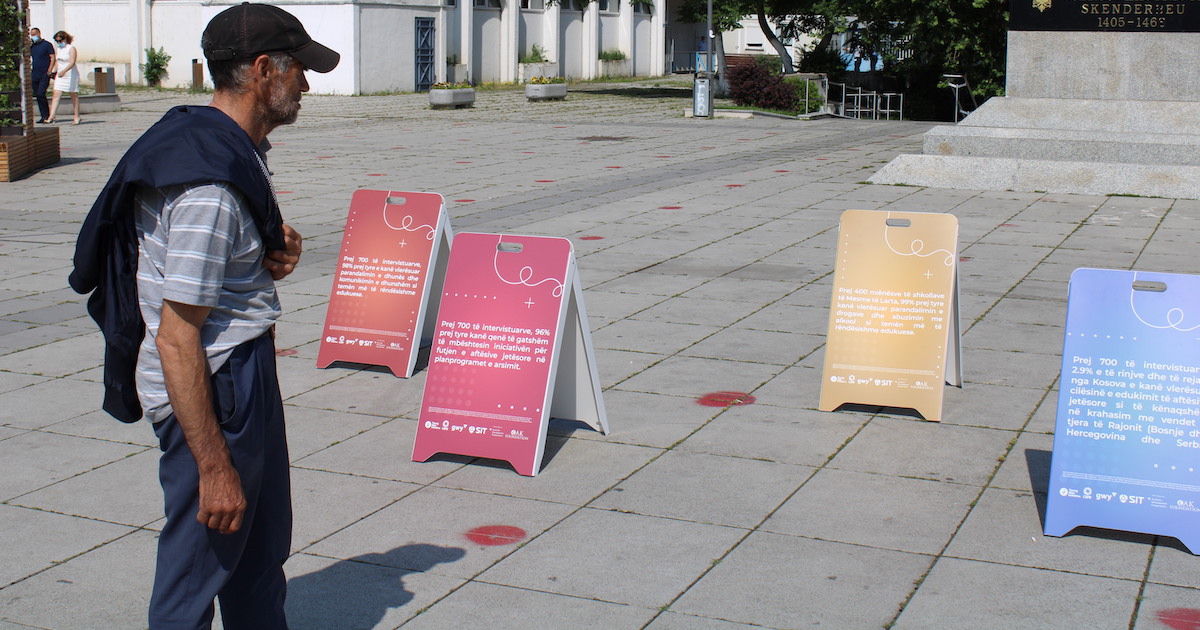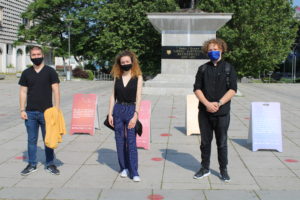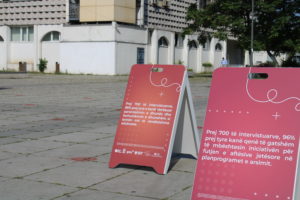
This story is authored by Era Hamiti, Communication Intern, Center for Counseling, Social Services and Research (SIT). www.sit-ks.org
“Life skills” are defined as those skills needed by an individual in order for them to function effectively in society in an active and constructive way. However, formal education often leaves Life Skills Education out of the picture; these systems prioritize knowledge of other subjects and believe that an increase in ‘formal’ knowledge alone will lead to positive changes in attitudes and behaviors. To learn more about the value of Life Skills Education, a research project conducted in the Western Balkans gathered the public’s opinion on the inclusion of life skills as a subject in high schools.
 On June 30, 2020, Be a Man Club in Kosovo presented this research in the center of Pristina at “Skenderbeu” Square. Citizens of all ages stopped by as Be a Man Club and its members presented the results from the research, using an activity called “Polling Research Street Action.” Out of 400 high school students, 99% rated drug prevention and alcohol abuse as the most important Life Skills Education topic, while out of 700 respondents, 90% rated gender equality as the most important topic. These are just some of the results from the study that the citizens witnessed as they passed by “Skenderbeu” Square in Pristina. These important results immediately grabbed the audience’s attention, causing some to come closer and ask for more information.
On June 30, 2020, Be a Man Club in Kosovo presented this research in the center of Pristina at “Skenderbeu” Square. Citizens of all ages stopped by as Be a Man Club and its members presented the results from the research, using an activity called “Polling Research Street Action.” Out of 400 high school students, 99% rated drug prevention and alcohol abuse as the most important Life Skills Education topic, while out of 700 respondents, 90% rated gender equality as the most important topic. These are just some of the results from the study that the citizens witnessed as they passed by “Skenderbeu” Square in Pristina. These important results immediately grabbed the audience’s attention, causing some to come closer and ask for more information.

The data from this research was gathered through May – June 2019 with a total of 2,500 young people, parents, teachers, professionals, NGO representatives, media representatives, and employers. The questionnaire asked respondents about their opinion on education for life skills, whether this type of education is necessary for young people, and if it should be made a mandatory part of formal education in schools.
This activity was held within the project “Men and Boys as Partners in Promoting Gender Equality and the Prevention of Youth Extremism and Violence in the Balkans,” implemented by CARE International Balkans in partnership with SIT – Center for Counseling, Social Services and Research and YMCA in Kosovo and supported by Austrian Development Agency and Oak Foundation. This activity will be held in cooperation with Youth for Exchange and Understanding International as well.